18 Apr2017
By Sungti Hsu
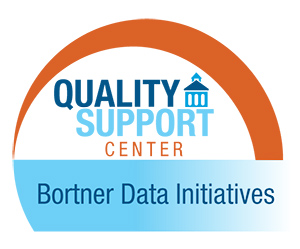
AACTE and Westat are partnering with state chapters and education agencies this spring to pilot new surveys of beginning teachers and their supervisors. By developing common instruments to be used across states that can also be customized with state-specific questions, the partners aim to fill the need for both national benchmarks for preparation programs (as called for in accreditation standards) and state-determined priorities.
AACTE staff conducted exploratory work last year, collecting and studying state-level instruments currently used for surveying program completers in 13 states that were willing to share both their instruments and their most recent survey results. We found that all of the instruments align with the InTASC model standards for beginning teachers, although their length and emphasis areas vary. Meanwhile, we began talking with state education agencies (SEAs) and AACTE state chapters and member institutions to gauge their interest in consolidating these state and institution data collection efforts in a national-level instrument.
18 Apr2017
By JTE Insider
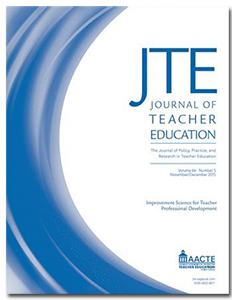
Have you seen the JTE Insider blog managed by the Journal of Teacher Education (JTE) editorial team? Check out the latest author interview below.
In this interview, Ilana Seidel Horn, Brette Garner, Britnie Delinger Kane, and Jason Brasel of Vanderbilt University discuss the research behind their recent article, “A Taxonomy of Instructional Learning Opportunities in Teachers’ Workgroup Conversations.” The article is available in the January/February 2017 issue of the journal.
10 Apr2017
By JTE Insider

Have you seen the JTE Insider blog managed by the Journal of Teacher Education (JTE) editorial team? Check out the latest author interview below.
This interview features insights from the JTE article “Preservice Teachers’ Learning to Plan Intellectually Challenging Tasks,” by Hosun Kang, assistant professor of education at University of California, Irvine. The article appears in the January/February 2017 issue of JTE.
The article’s abstract reads in part, “This study explores how and under which conditions preservice secondary science teachers (PSTs) engage in effective planning practices that incorporate intellectually challenging tasks into lessons. Drawing upon a situative perspective on learning, eight PSTs’ trajectories of participation in communities of practice are examined with a focus on planning throughout student teaching. […] The analyses show that instructional tasks observed at the beginning of lessons link to the ways in which PSTs engage in the three interrelated processes of (a) framing instructional goals, (b) constructing a lesson scenario, and (c) addressing problems of practice.”
04 Apr2017
By Kristin McCabe
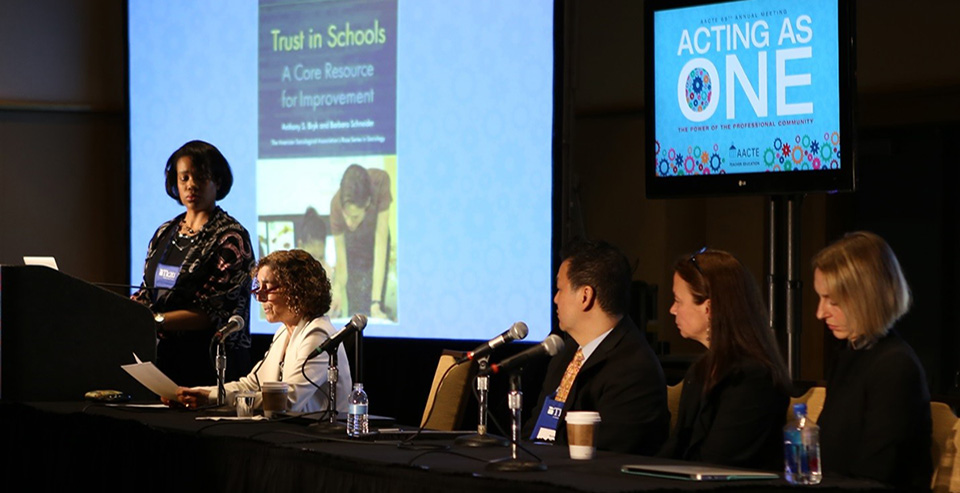
In an AACTE major forum held March 3, a panel of teacher educators from three state universities discussed the power of partnering with nonschool sites in communities to help prepare effective teachers. “Community-Based Teacher Preparation as Praxis: Preparing Effective Educators Through Research-Practice Partnerships” was organized by the editors of the Journal of Teacher Education (JTE)to bring attention to pioneering work under way on this emerging practice.
JTE Coeditors Dorinda Carter Andrews and Gail Richmond of Michigan State University served as moderators for the panel, which included the following presenters:
04 Apr2017
By Amanda Lester and Rodrick Lucero
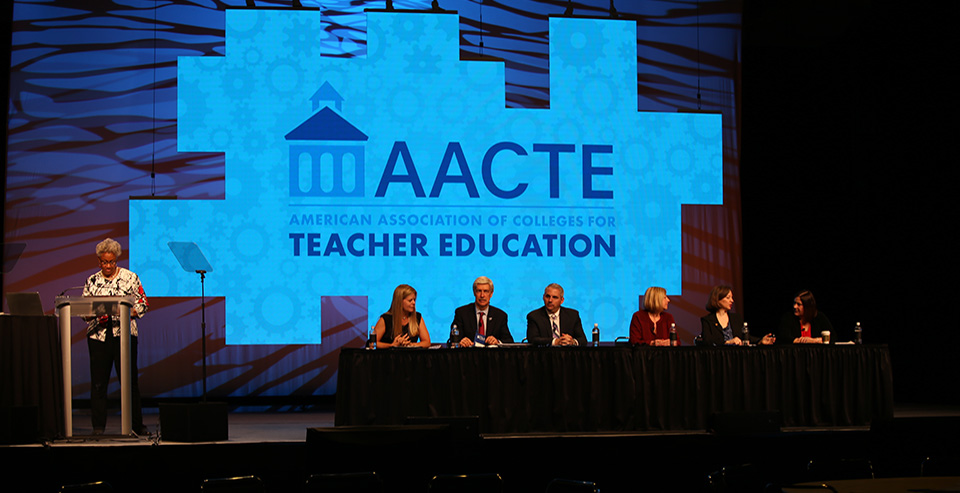
On the last day of the 69th AACTE Annual Meeting in Tampa, Florida, the AACTE Clinical Practice Commission (CPC) held a major forum to unveil and discuss the 10 “Essential Proclamations and Tenets for Highly Effective Clinical Educator Preparation” identified in the CPC’s work. These proclamations and tenets, which undergird a forthcoming white paper, were released during the forum as part of a draft executive summary of the paper.
The event started with a panel presentation and discussion moderated by CPC member Jennifer Robinson, executive director of the Center of Pedagogy and associate professor at Montclair State University (NJ). Panelists included Michael Alfano, Central Connecticut State University; Diane Fogarty, Loyola Marymount University (CA); John Henning, Monmouth University (NJ); Rene Roselle, University of Connecticut; Jennifer Roth, Poudre School District (Fort Collins, CO); and Christine Smith, University at Albany, State University of New York.
04 Apr2017
By Amanda Lester
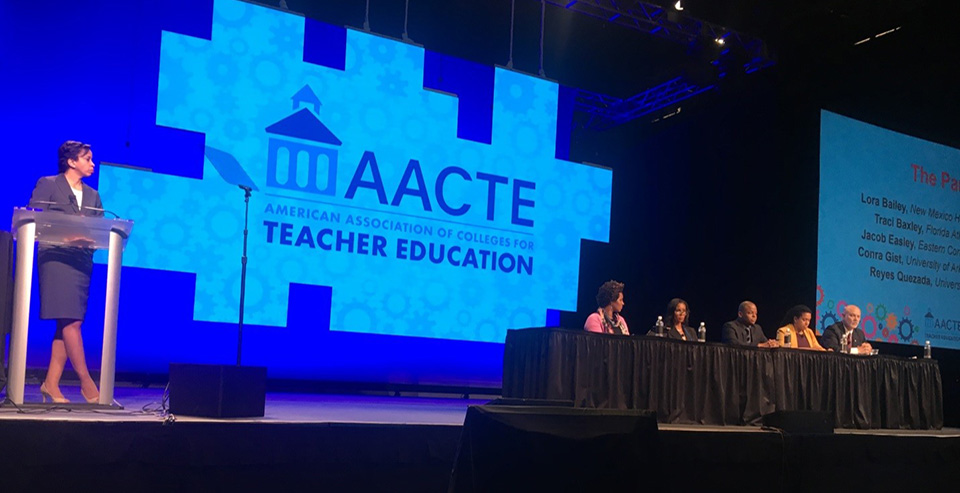
A major forum at last month’s AACTE Annual Meeting highlighted actions under way to diversify the teaching workforce and advance social justice at universities across the country. Titled “Meeting the Needs of All Learners: Advancing Social Justice and Diversity in Teacher Preparation,” the forum featured panelists from four Association initiatives working toward these objectives: the AACTE Black and Hispanic/Latino Male Teacher Initiative Networked Improvement Community (NIC), the Diversified Teaching Workforce: Recruitment and Retention AACTE Topical Action Group, the AACTE Holmes Program, and the AACTE Committee on Global Diversity.
The forum was moderated by Sharon Leathers of William Paterson University (NJ) and included the following panelists, each of whom is a member of one or more of the four initiatives: Lora Bailey of New Mexico Highlands University, Traci Baxley of Florida Atlantic University, Jacob Easley of Eastern Connecticut University, Conra Gist of the University of Arkansas, Fayetteville, and Reyes Quezada of the University of San Diego (CA).
28 Mar2017
By Rebecca Gutierrez
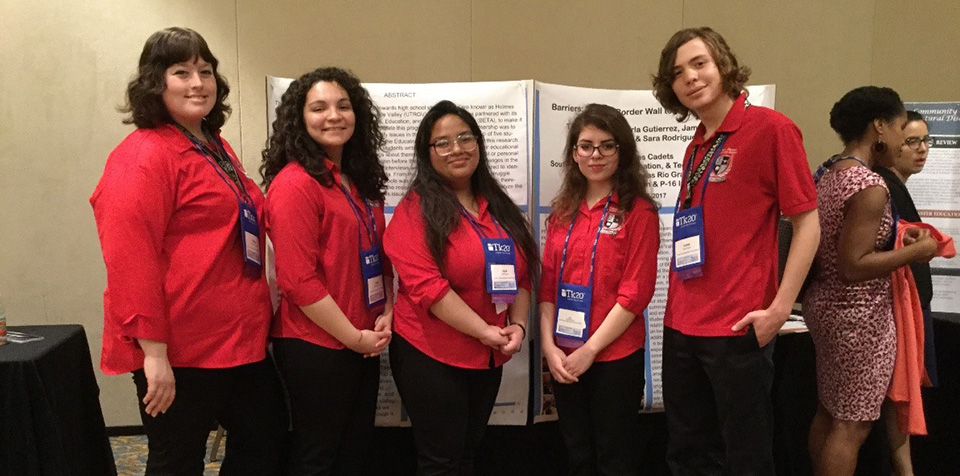
Did you notice a fresh burst of energy at AACTE’s Annual Meeting this year? Then you might have been lucky enough to interact with the high school students from the South Texas Independent School District (STISD) who attended as participants in the AACTE Holmes Program.
27 Mar2017
By Adrianne Taylor
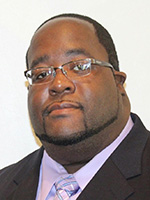
Congratulations to March Holmes Scholar of the Month Frank Conic!
Conic is a doctoral candidate in higher education administration at the University of Florida (UF), where his research and professional concentration is focused on developmental mathematics education, policy, and reform. His other research interests include the achievement gap for minority students and the “school-to-prison” pipeline.
Conic, who has been a Holmes Scholar since 2011, exemplifies the tenets of scholarship, research, leadership, and mentoring both in his studies and professionally. He is a graduate assistant for the UF/Santa Fe College Faculty Development Project, serving as an adjunct instructor in the mathematics department at Santa Fe College. He is also assistant program director for the Community College Futures Assembly, an independent policy forum in the Institute of Higher Education at UF. Additionally, Conic serves as a mathematics coach for the National Achievers Society at the Santa Fe College Center of Excellence, a multifaceted program to motivate elementary and secondary students to prepare for and ultimately enter college.
21 Mar2017
By Amanda Lester
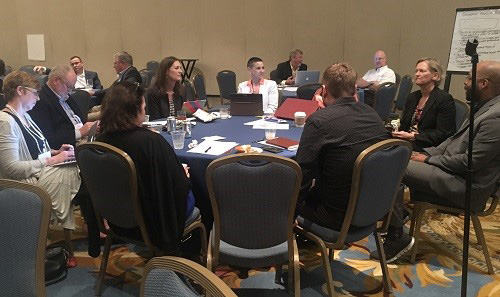
In conjunction with the 69th Annual Meeting, AACTE hosted a daylong workshop March 1 titled “Strengthening Leadership Through Communities of Professional Learning Educational Leadership Preconference,” sponsored by The Wallace Foundation. The event was attended by higher education leaders from across the nation, who shared model strategies and identified priorities and actions needed to strengthen principal preparation across local contexts.
The agenda featured two interactive segments, both of which explored ways to renew principal preparation programs through collaborative action.
17 Mar2017
By Julie Evans
AACTE is collaborating with Project Tomorrow to support that organization’s survey of preservice teachers, “Tomorrow’s Teachers Speak Up.” The views expressed in this post do not necessarily reflect the views of AACTE.
Tomorrow’s Teachers Speak Up is a unique opportunity for America’s next generation of teachers to share their ideas about how to leverage technology within learning, how they are being trained, and what they expect when they enter the classroom. The national data findings will be used to inform national policies on technology use in education, and to inform K-12 school and district leaders on the aspirations of tomorrow’s teachers.
Colleges, universities, and programs that register and promote the surveys to their students will receive the national data findings as well as their own institution’s results in June – for free.
16 Mar2017
By Dana Dunwoody and Tim Finklea
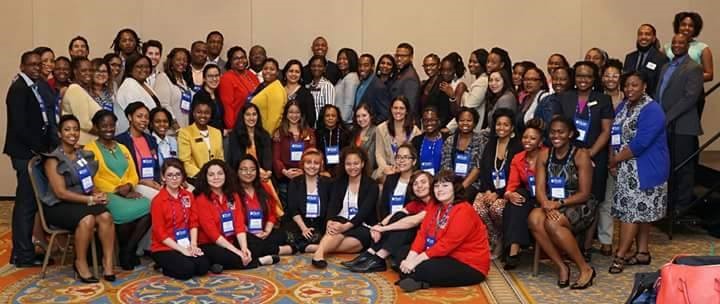
This month, more than 80 participants in the AACTE Holmes Program convened with coordinators and alumni for our annual preconference event at the AACTE Annual Meeting. The 2-day program (see the agenda) led by members of the 2016-2017 Holmes Scholars Council, the National Association of Holmes Scholars Alumni (NAHSA), and AACTE provided a rich variety of integrative and thought-provoking sessions and interactions.
14 Mar2017
By Sharon Robinson
The colleges and universities that prepare our nation’s educators are deeply committed to program quality, innovation, and accountability, and important progress is under way in each of these areas at the institutional, state, and national levels. While our priorities are unchanged by the presence or absence of federal regulations, the regulations that were voted down by Congress last week would have impeded this progress by redirecting already-tight resources to create an onerous new reporting and rating system for teacher preparation programs. Now, thanks to the robust advocacy efforts of the field, our professional commitments can proceed unhampered by burdensome mandates and prescriptive-yet-unproven methods.
Absent these regulations, educator preparation providers (EPPs) participate in numerous public reporting and quality assurance systems. Both EPPs and states are required by Title II of the Higher Education Act to submit annual reports to the U.S. Department of Education, and states must report at-risk and low-performing programs. Programs also must meet state review standards, and several states have developed data dashboards that display information for all providers to help the public compare program quality. A plurality of EPPs also undergo national examination through the Council for the Accreditation of Educator Preparation – a professional peer-review process using standards that are developed by the field and based on research.
27 Feb2017
By JTE Insider

Have you seen the JTE Insider blog managed by the Journal of Teacher Education (JTE) editorial team? Check out the latest author interview below.
This interview features insights from the JTE article, “Informed and Uninformed Naïve Assessment Constructors’ Strategies for Item Selection,” written by Helenrose Fives and Nicole Barnes of Montclair State University (NJ). The article is featured in the January/February 2017 issue of JTE; you can read the article by going to this link (and AACTE members have free access through this login link).
27 Feb2017
By Debra Cano Ramos
This article originally appeared in the Winter/Spring 2017 edition of Titan Magazine and is reprinted with permission.
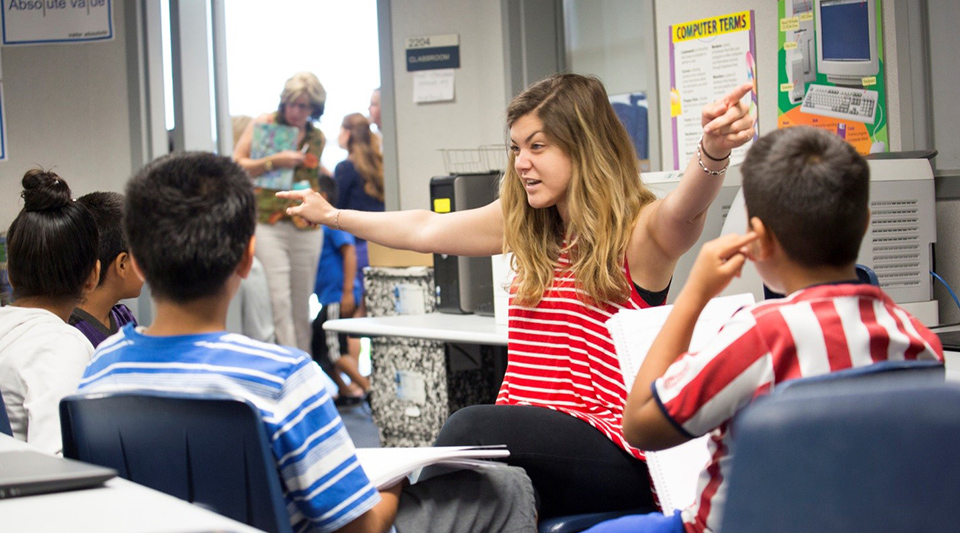
Cal State Fullerton education alumna and camp teacher Alex Lehrer leads her students in acting out a scene from the poems that they created about rainforest animals during a Rainforest Safari Camp.
14 Feb2017
By Kristin McCabe
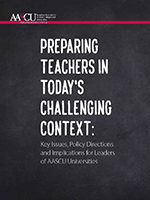
A new report from the Teacher Education Task Force of the American Association of State Colleges and Universities (AASCU) makes a compelling case for quality teacher preparation, capturing the key challenges that make the current context complex but also offering recommendations for both university leaders and policy makers to move the field forward.
The task force conducted a survey last year of presidents, provosts, and education deans at state colleges and universities to gauge the current state of educator preparation. (The survey results are included as an appendix to the new report.) The responses informed conversations among task force members to distill the core themes, debate their implications in light of the latest research, and determine consensus recommendations for priority actions by higher education administrators. The results were combined to craft the new report, and the AASCU policy team added a set of priorities for federal and state policy.
















